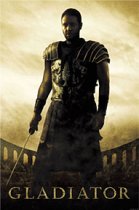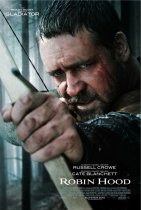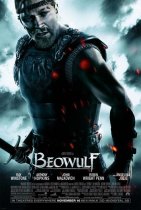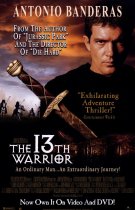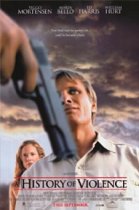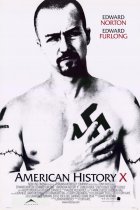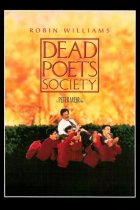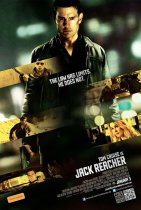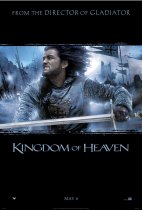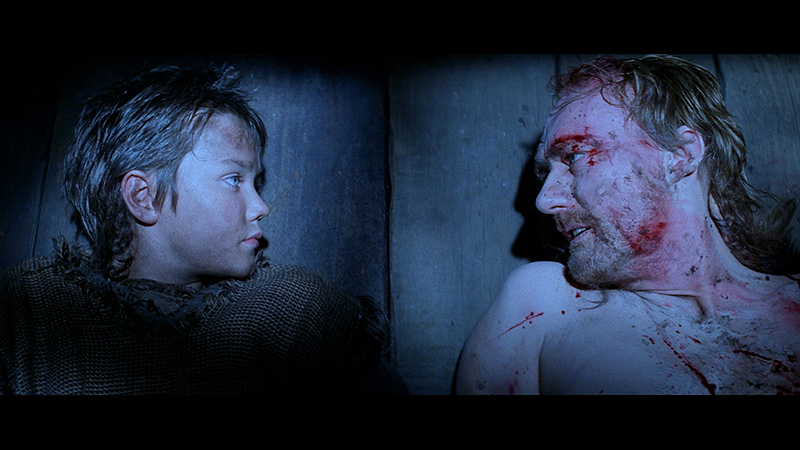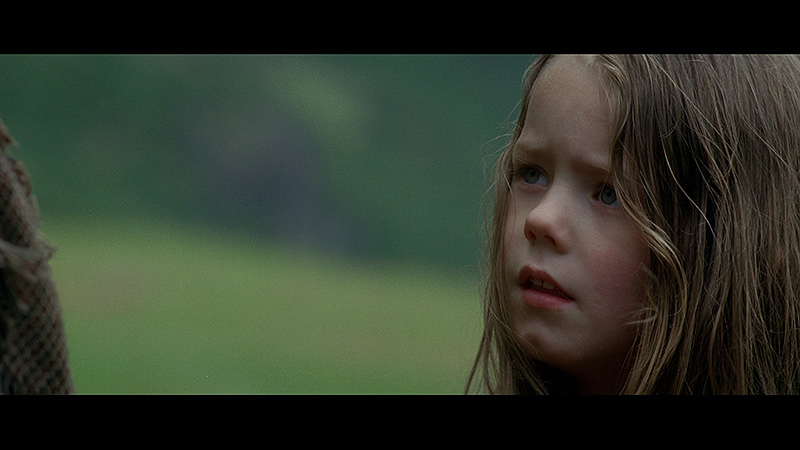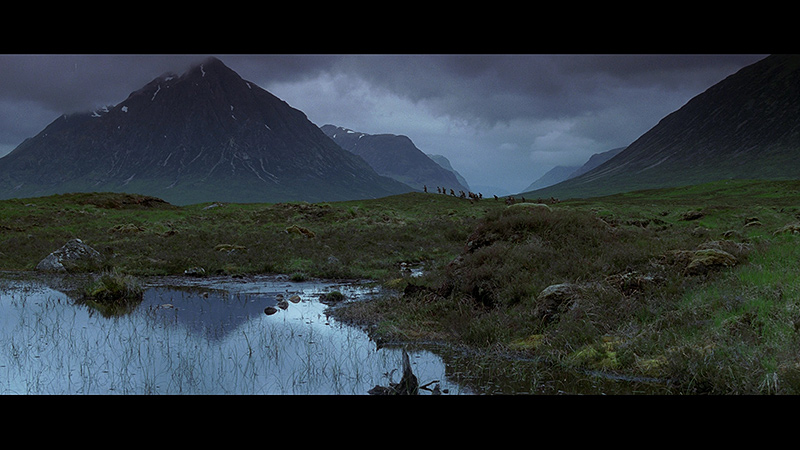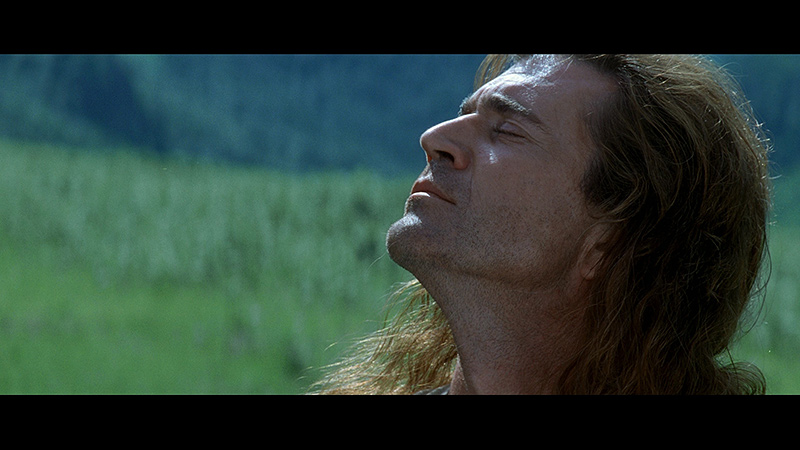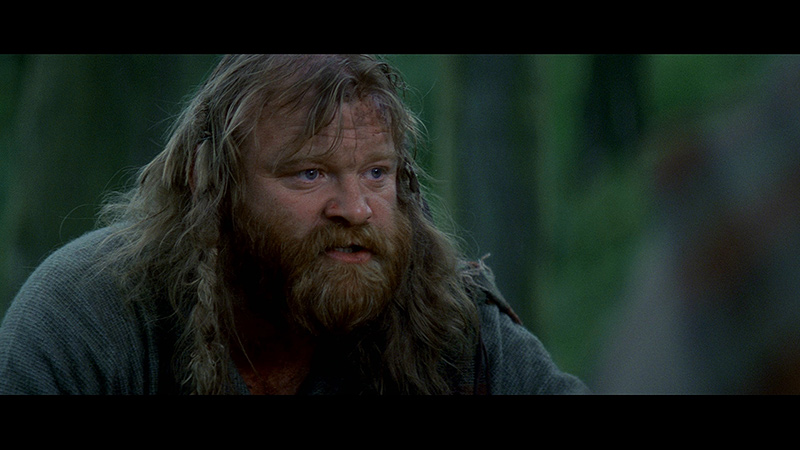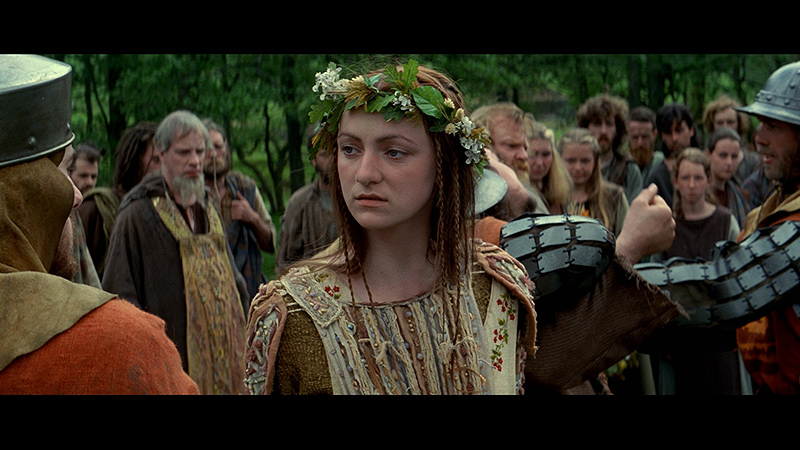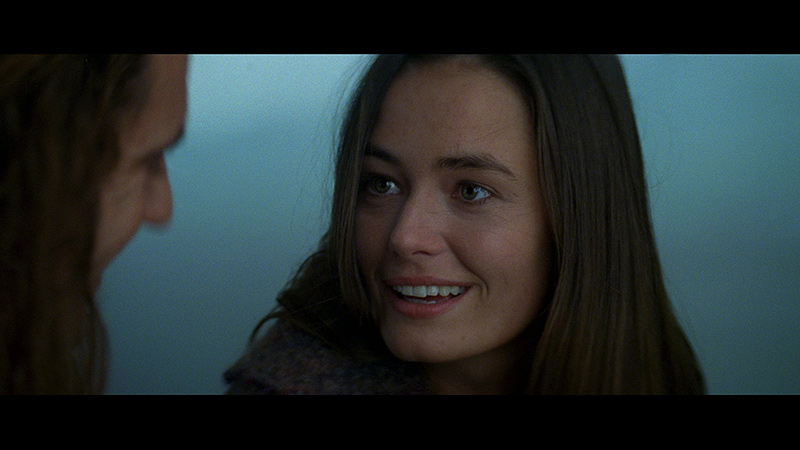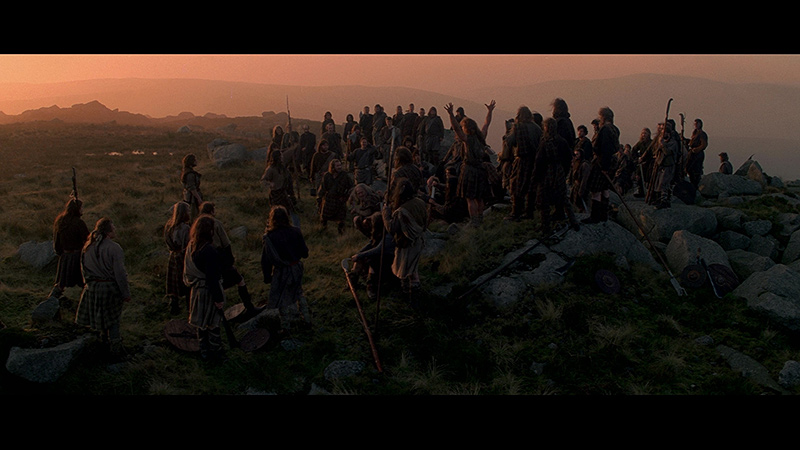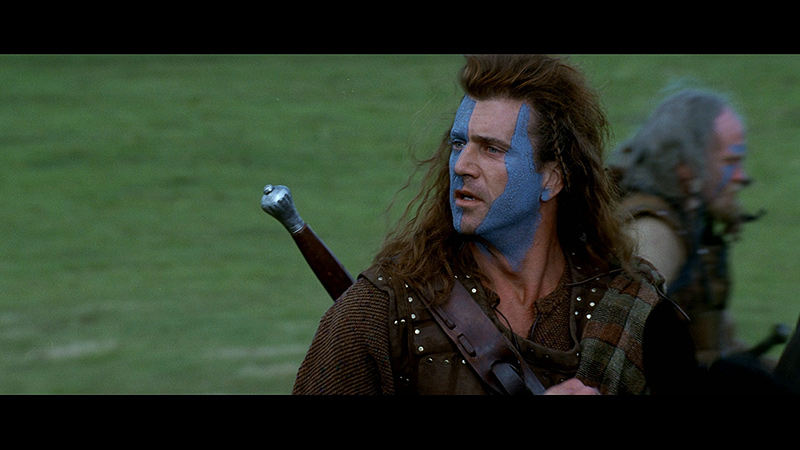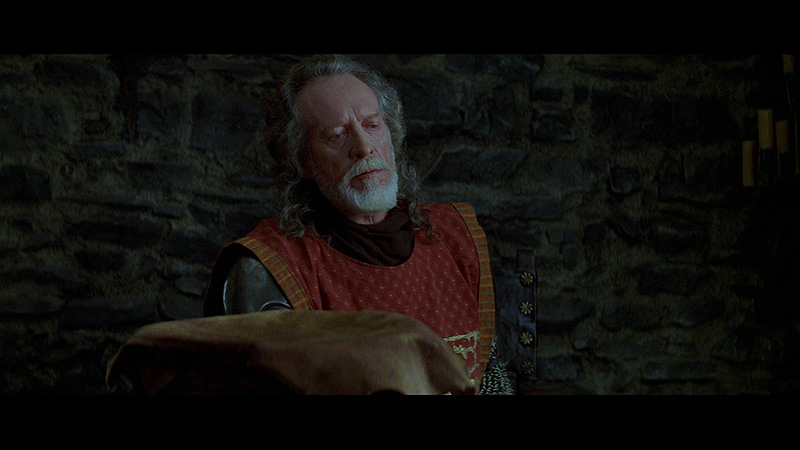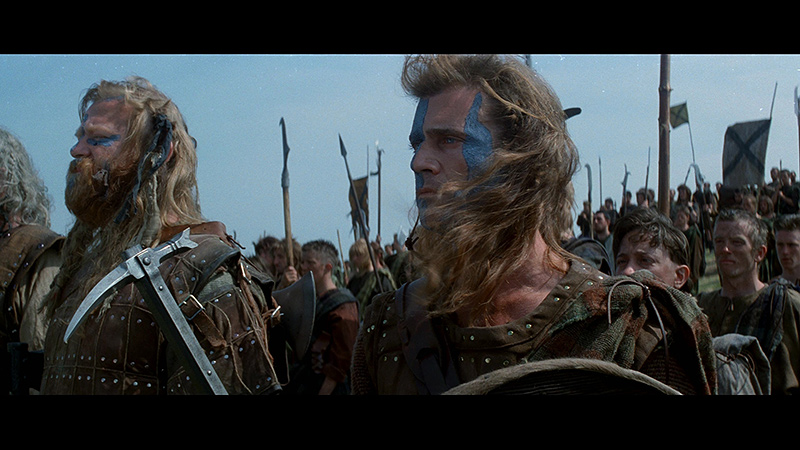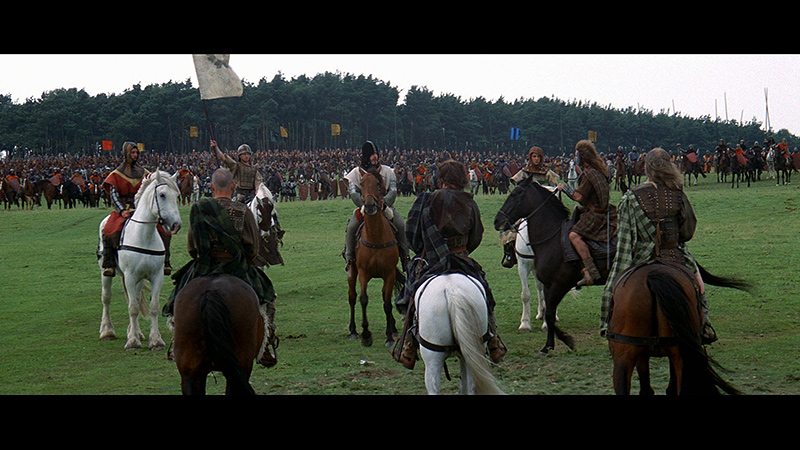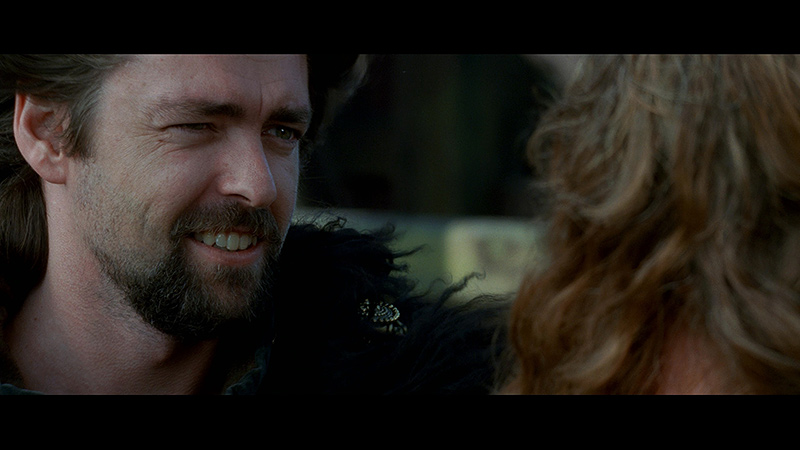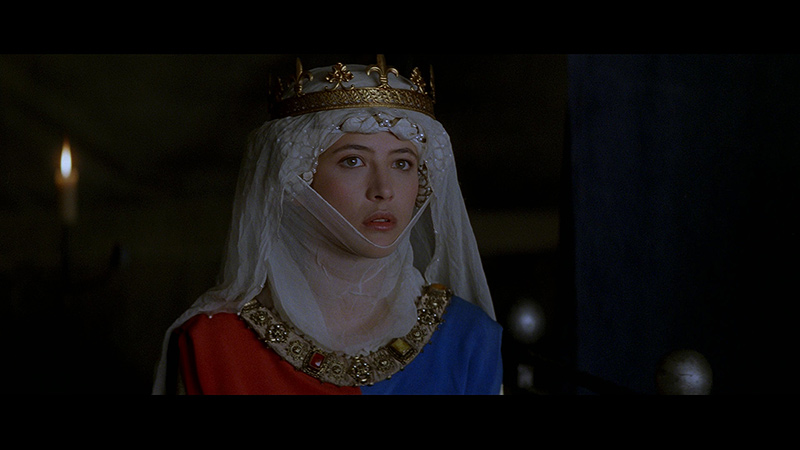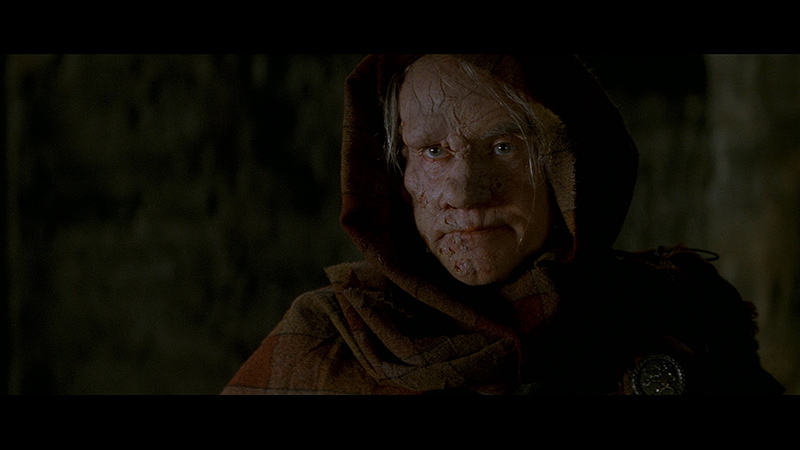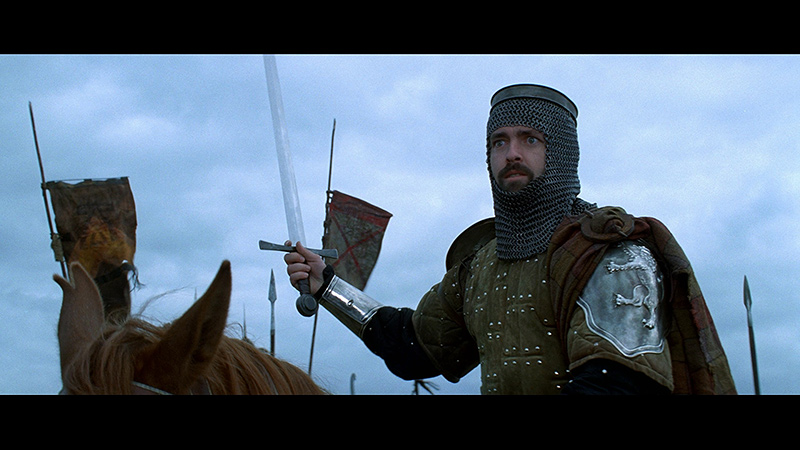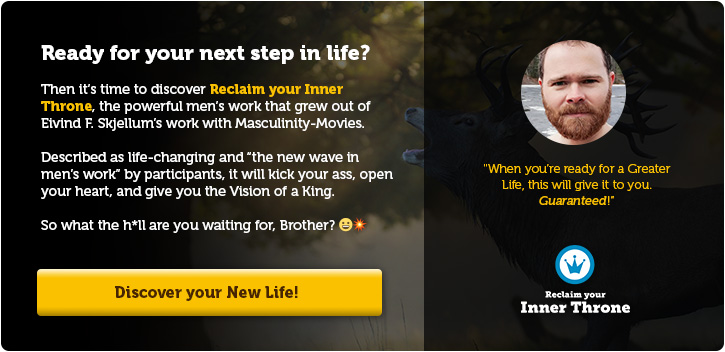Braveheart (1995)
Synopsis
After losing his father, brother and wife to the brutal Edward the Longshanks, King of England, William Wallace finds himself the unlikely leader of a Scottish fight for freedom. It is a job he didn’t want, but with the dream of a wife, children and a peaceful home now shattered, all that is left is his dream of a country of our own. Braveheart is a solid introduction to the Warrior archetype and gives poetic accounts of the importance of Brotherhood and the power of love.
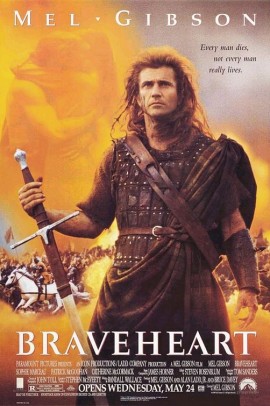
| Genre | Drama, Action |
| Production year | 1995 |
| Director | Mel Gibson |
| Male actors | Mel Gibson, Brian Cox, Brendan Gleeson, Angus Macfadyen, Patrick McGoohan |
Your freedom must be claimed
by Eivind Figenschau Skjellum
Ah, Braveheart… I remember leaving the movie theater that evening in 1995. I was seventeen, clueless and inspired. Something stirred inside and I could tell my friends had been impacted as well. Yep, we loved it and for many years to come, when asked my favourite movie, Braveheart was my answer.
With time I came to understand that I yearn for total and unmitigated freedom above all else. Freedom to express, to love, to penetrate and expand. And as William Wallace let out his “FREEEEEDOM!” at the end of my adolescent years, somehow that need was met – to taste, if only tangentially, a life lived from such a place…
It’s our wits that make us men
We enter the story in 1280. The King of Scotland has died without an heir and the cruel King Edward Longshanks has claimed the throne for himself. One day, he lures many Scottish nobles to a barn under a banner of truce and has them hanged. William’s father gathers the clan to fight.
There is a magnificent scene in which William’s father and older brother prepare to battle the English. “I can fight!,” William screams. What a bold statement – likely to be met with scorn by many modern parents. But Daddy Malcolm pauses, turns to face his son and gently tells him “I know. I know you can fight.” He smiles knowingly. “But it’s our wits that make us men.”
This scene moves me. Instead of collapsing into shame when being confronted with his son’s capacity for aggression, Malcolm recognizes the moment is ripe for mentorship. This scene points to the challenging job of every father to, without shaming him, embrace the Warrior archetype in his son and channel its vast energies into constructive, world-building pursuits (for the many new age fathers who are trapped in the masochistic shadow pole, this is virtually impossible).
Braveheart – early years
A man dies. A brother takes his place
Some time later, the men who set out to battle the English return with broken spirits, pulling a heavy chariot with bodies on it. “Come here lad,” one of them says with a voice imbued with gentle, loving strength. There is something so nourishing about the way these men address young William, even when bringing the dark tidings of his father’s and brother’s death. A part of me feels yearning inside when I watch these scenes – no man ever addressed me like that when I was wee lad.
Then uncle Argyle arrives. Argyle is the mentor, appearing as if summoned by his brother’s last breath. And it is as it should be; in many ancient cultures, it is the uncle’s responsibility to bring the boy into manhood, as aboriginal elder Bob Randall reminded me when I spoke with him in September.
The teaching is about to begin.
Scotland rises
Many years later, William returns. We can but imagine his adventures. And as we will soon find, Argyle has done a fine job with his nephew. William quickly courts Murron and gets his way – his Lover archetype is healthy and the scene where he returns her thistle moving. I see it as a gentle reminder of how we can be soft and romantic, especially faced with the woman we love, without losing our masculinity; that is precisely the gift of the Lover archetype.
William and Murron marry clandestinely in a forest clearing one night, to avoid the horrific implications of primae noctis.
Their marriage is a short one. Murron is killed by the local magistrate and William returns to avenge her. Having defeated the English troops, the clans soon rally behind William, looking to him for leadership. It seems that a man who is willing to risk, risks becoming a leader. And though he desired but peace and a family, William now finds himself the unlikely leader of a rebellion.
And thus he picks up the sword left by his father. There is something quite electric about a man’s experience of getting to know, in his adult years most likely, his father’s (sometimes well hidden) goodness and vision for life (this journey is described well in the movie Robin Hood). In being given the chance to bring a father’s seed to fruition, a man finds in some well hidden, moist and mourning part of his heart enormous power of lineage.
The dark father
Enter Robert the Bruce, a key character and the main contender for the Scottish crown. I’m fascinated by him. He wants to do the right and noble thing, but is torn between his own inner conviction and the toxic advice from his rotting father. This miserable, forlorn man that hides in a tower is reminiscent of Darth Vader – powerful in a way, yet greedy for power to the point of losing his humanity (though even in him exists a soft spot where he mourns the life he didn’t live). And just like Darth Vader, he is a Shadow Magician, a cynical manipulator.
It could be that we all have a dark father, and though that dark matter may (or may not) be but trace elements in our own biological father, there is something archetypal going on here. We all have, I believe, a man in a tower somewhere who tells us lies for our “own good”. And when we heed his voice, we and those around us suffer. (Get to know that voice and fight it. That tower needs to burn! New age embrace won’t work here.)
Robert is inspired by William and inspiration is something his father does not understand. For his is a closed heart, void of any juice and joy. Be real wary of taking advice from such a person.
Invading England
At the fields of Stirling, William rouses the Scottish troops and Argyle lingers on the wind as the Scotsmen rise their spears in defiance of English cavalry. Soon, the English tuck tail and a blood-stained William rises his sword as a roar of victory ripples through the weary troops. William’s Warrior archetype is at the peak of its power.
Despite their defeat of the English Northern Army, the Scottish nobles remain one bickering crowd, as is often the case with those who care for politics (too much brain, too little heart and body). William is no politician. And his leadership is of a temporary kind – alive only as long as Scotland’s sons and daughters don’t know freedom. It’s not that he is void of the King archetype, it’s just that he is not destined to be the leader of a people. His vision is of a simple life: A house, a woman and children. He is not a ruler for times of peace.
No, Scotland’s future leadership lies in the hands of Robert the Bruce and it is with the harmonizing grace of his King archetype that William finds the strength to invade England and claim York.
Things are looking up for Scotland. Though Murron, sadly, remains just as dead.
The dream collapses
Princess Isabelle, the French princess who marries Edward Longshank’s effeminate, weakling son (trust the son of a tyrant to become a weakling), becomes William’s unlikely ally. She is fascinated by him. He is a true man, unlike her wimpy husband and the rest of the shut down men that lurk England’s halls of power. A woman would do a lot, it seems, to honor true manhood (having a mission in life is real sexy to a woman. Just ask one).
But the Scottish nobles honor power and property – what else is there to love when your non-integrity steals your self-fulfillment? Surely, hiding self-contempt with pursuits of material gain is no way to live! At Falkirk, they turn their backs on Scotland. Selfish, single-minded hunt for property destroys all men in the end.
When William in one scene pulls off the helmet of a knight who just charged him, only to realize it’s Robert the Bruce, something important happens. William has trusted Robert and now he finds himself betrayed. As I watch this scene, a thought enters my mind: If I were to break the trust of a friend, I would want him to react like this. If this level of hurt is not present at my betrayal, it is a friendship not quite worth having. I am saying that from now on, I want Brotherhood above all else, and you simply don’t betray a Brother (are you with me?).
Bruce is torn apart by his ravaging guilt and tries to put things right. But his dark father intervenes and William is captured by the English. Bruce’s heart is decimated. William Wallace dies (with a scream that still echoes from my adolescent years).
It is with Murron’s bridal cloth in hand that Bruce continues William’s legacy and claims Scotland’s freedom at the fields of Banockburn. We imagine that his heart is put at rest somehow by this, through some sort of spiritual alchemy inherent in fulfilling any true legacy. And we conclude that one Scottish man’s love for a good woman carried within it the power to free a people.
Love and freedom. Really Brothers, what else is worth living for?
Powerful ideas from Braveheart
- The sons and daughters of Scotland were enslaved because their King didn't produce an heir. How is this insight relevant to your own life?
- While freedom is your birthright, it's only truly yours if you step up and claim it.
- Your father had a vision for his life, probably far greater and more noble than you ever dreamed possible. As sons, we find enormous power of lineage when we manage to tune into and perhaps fulfill that dream.
- A boy needs a mentor to become a man.
- If the horsemen of the apocalypse keep trampling you, you need spears. Long spears.
- A man's betrayal of a Brother will tear him up inside, potentially destroying his soul.
- The man who pursues property for his own gain alone may have horsemen enter his bedchamber at night.
- Treat a boy with respect. He needs a man's attention to become one himself.
- Don't trust a joyless, rotting man who lives in a tower and tells you things "for your own good".
- Don't interfere with love. Its power is enough to make empires crumble.

